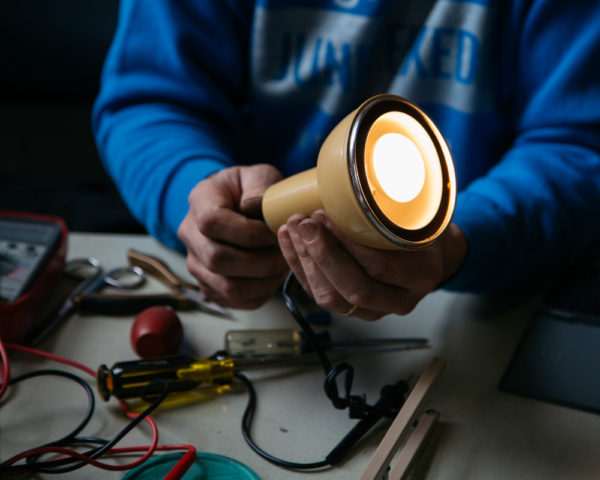“When people find out they can repair something, they get really excited about it” says Cindy Correll, one of Portland Repair Cafe’s co-founders. “People want to get their stuff fixed, but our culture has evolved to where it’s not the norm anymore. So all the little repair shops have kind of disappeared because they couldn’t make any money, and manufacturers are making things to be replaced and not be repaired.”
“But clearly there’s still a lot of need for repairs,” Cindy adds. Her organization hosts free events called Repair Cafes where volunteers work on broken things of all kinds. They occur monthly at locations around Portland. Today the North Portland Tool Library is crowded with about thirty volunteers and over a hundred people looking for a repair– small appliances and lamps, clothes, bikes, lawn mowers and more.
Portland Repair Cafe’s volunteers are largely self-taught tinkerers. Many have been involved with Repair Cafe’s from the beginning, and take quiet pride in their successful fixes.
Bob is a self-employed handyman and regular volunteer. He recounts one of the day’s memorable repairs: “A lady brought in two identical toaster ovens with broil and warming features, and neither one of them worked. One of them had a melted element, the thing’s supposed to be straight, and it was a curlicue, it was like taffy. It overheated, because the board was bad on it. The other one didn’t work because the switch was bad. And we switched switches, and now she’s got one that works.”
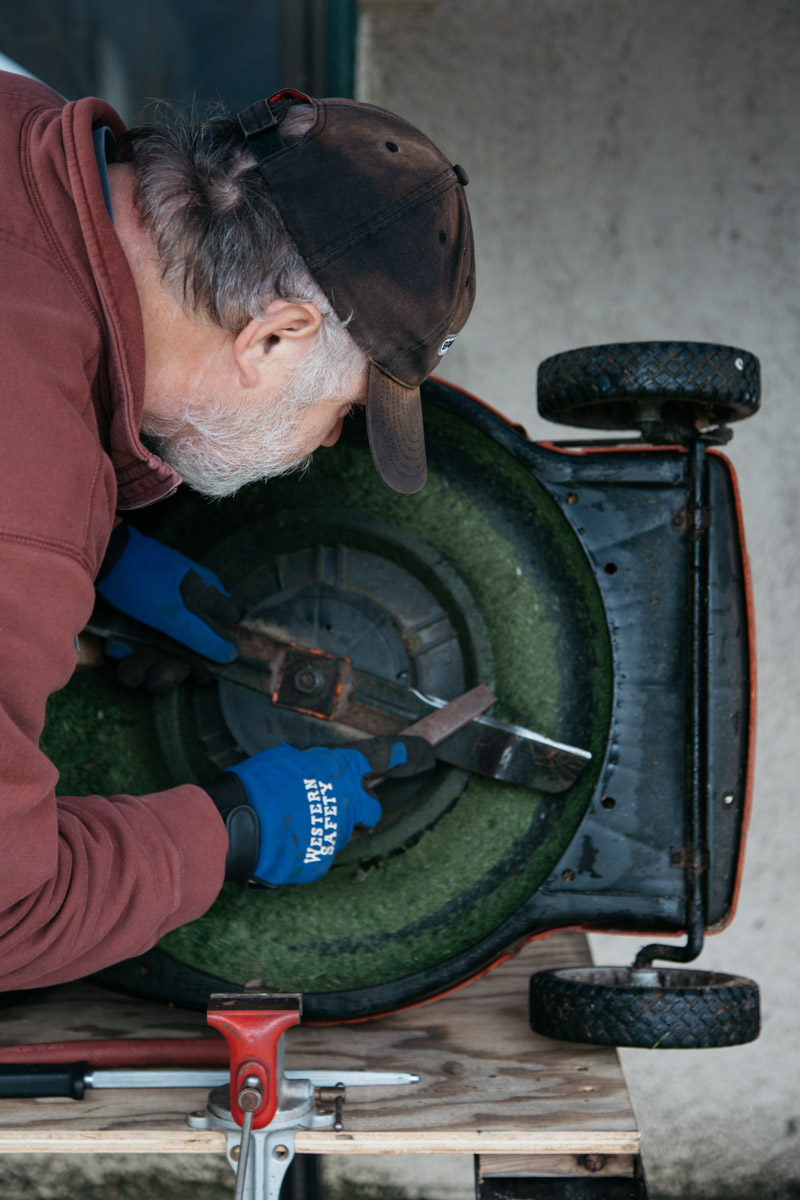
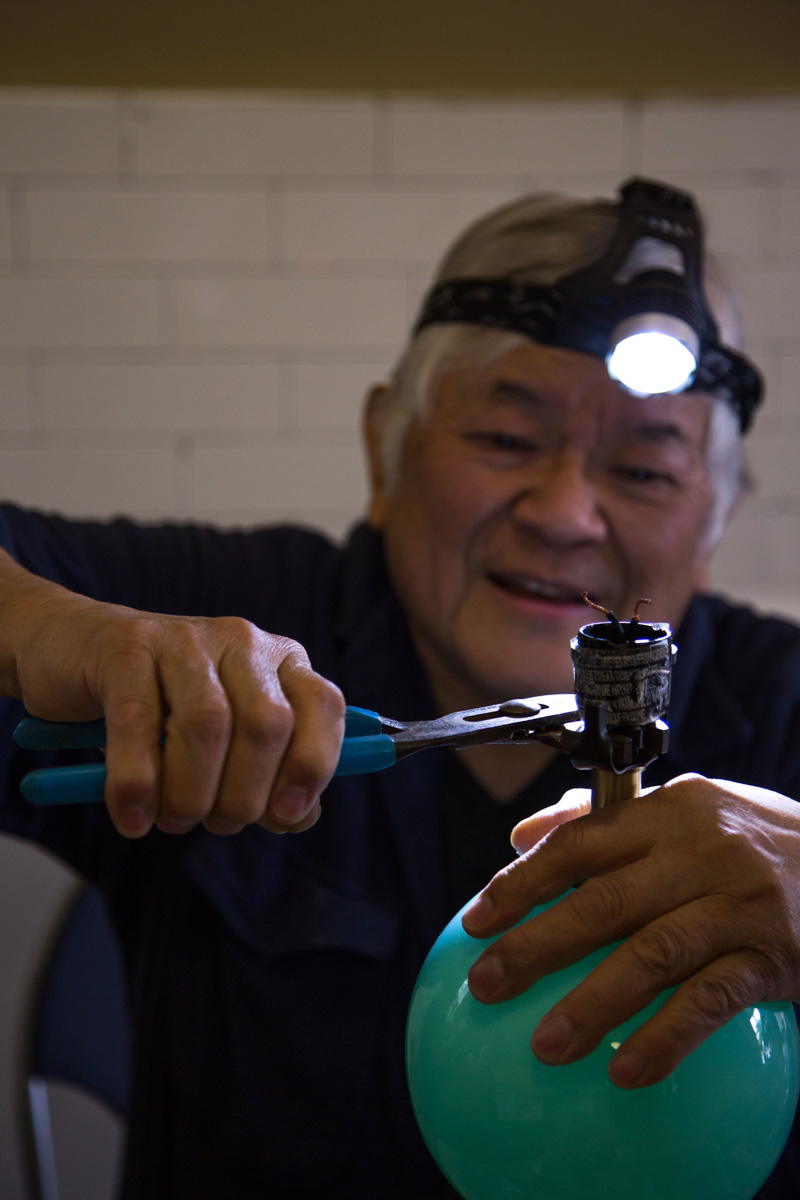
Repair Cafe Volunteer Richard replaces a bulb socket on a lamp. Chuck sharpens a lawnmower blade.
Bob’s grandson Nick is also Repair Cafe volunteer. Nick’s a senior in high school, and has inherited his grandfather’s tinkering skills. He plans to pursue mechanical engineering and machining at Oregon Institute of Technology next fall. According to Nick, most Repair Cafe fixes are pretty straightforward. “Mostly people think it’s broken but it’s just a little bit tweaked, or not in the right spot. For a lamp, usually it’s the cord, or the place where the bulb goes. Pretty simple to fix.”
Cindy confirms: “A lot of times we’ve found things aren’t really broken. There’s a bad contact, it needs to be cleaned, it needs a reset switch, or there’s a battery they didn’t even know was there that’s out. So there’s a lot of stuff that gets thrown away that’s a simple fix.
“We also see a lot of things come in where it’s sealed by the manufacturer. It’s glued together. I’m locked out, I can’t even get a look inside to see if it can be fixed. It might be a little contact that needs to be cleaned with alcohol, but you would never know that because you can’t get inside. So that’s the manufacturing side that if we can create that demand maybe they would have certification programs for repair people, or parts and parts diagrams and manuals.”
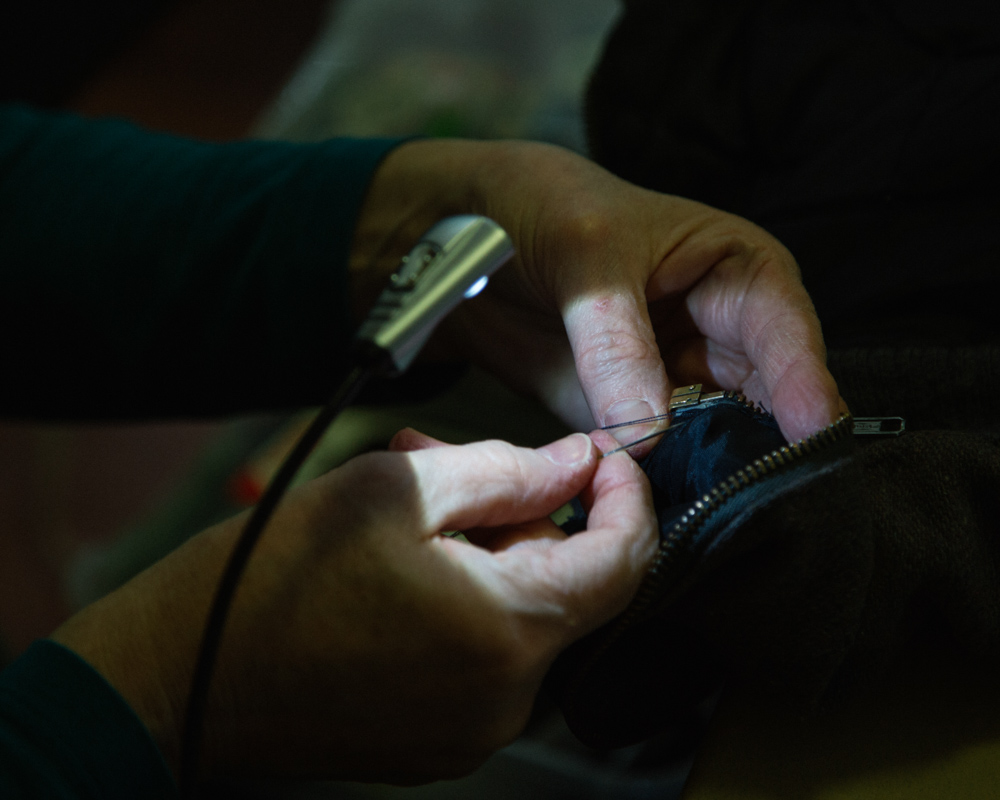
Unsticking a broken zipper. Repair Cafes have a diverse group of volunteers, able to repair most anything.
“We would love to see it grow to the point where young people get interested in repair, and it could eventually be a career path again for people. Right now it has to be a hobby for most of us.” Because throwing things away is the cultural norm, people often make repairs only for special things, like family heirlooms or objects with sentimental value.
Steven, a regular attendee received a set of power tools from his great aunt and uncle, and has diligently had them repaired at Repair Cafes. The tools were “made with steel back in the sixties, so it’s a matter of small things burning out, and I bring it here and get it fixed. It lives on.”
Repairing things seems might no longer be the norm, but there’s a lot of people who are interested. Steven adds “I’m heartened by the fact that there’s younger people here. There’s this generational dynamic, between young people who don’t want to buy new shit all the time, and older people who know how to fix it. It’s beautiful to see that.” Portland Repair Cafe is considering working with schools and makerspaces to introduce more young people to fixing.
Cindy says Portland Repair Cafe’s goal is to get more people involved in fixing things, in order to grow demand for repair shops and better made products. “It’s kind of like recycling when it started. It was people doing it on their own, and there’d be these little pop-up recycling centers. And now curbside recycling is the norm.”
“We’re kind of pushing up from the grassroots level, the demand for repair. And there’s other organizations, there’s the Repair Association that’s pushing from a legislative level, what’s called Right to Repair. So they’re coming at it from the top, we’re coming at it from the bottom, and my dream is that people are going to start, when they buy something new, asking, ‘Well, if I buy this can I repair it if it breaks?’ Because manufacturers will start hearing that.”
The Repair Cafe movement has been growing. The first Repair Cafe took place in Amsterdam in 2009. Portland Repair Cafe has been around for 4 years, and now similar events are taking place in Clackamas and Washington Counties, Milwaukee, Gladstone, West Linn and Vancouver. Groups from both Ashland, Oregon and Eugene are considering launching cafes.
The Repair Cafe creates excitement that attracts repeat visitors, and seems to build on itself with each successful fix. Cindy explains, “People get something fixed, next time something breaks instead of going ‘Oh, I need a new one, they go hey, I wonder if I can fix that.’”
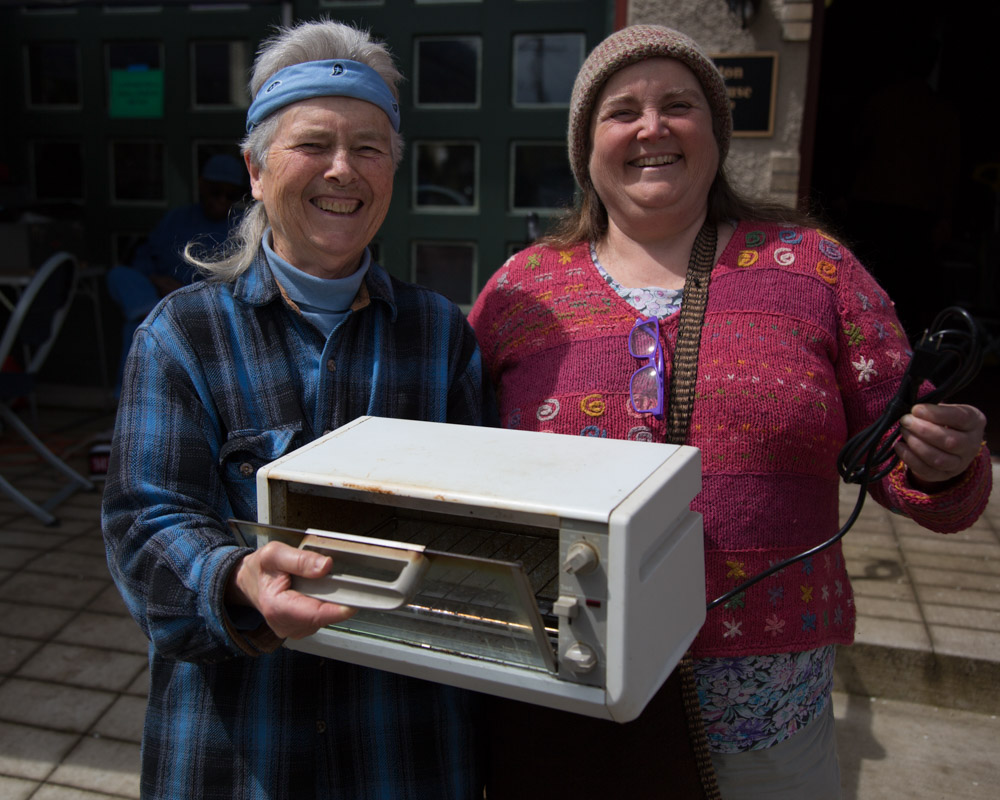
All smiles after a successful repair. This toaster oven lives on.
She adds “Since November, for some reason, interest in what we’re doing has skyrocketed. Maybe because now we’re in the 4th year and lots of people know about us, but it seems to be since the election that we have more people coming to events and more people that are interested in volunteering. People want to do something.”
“It’s exciting. Repair Cafes are all over the world now.”
